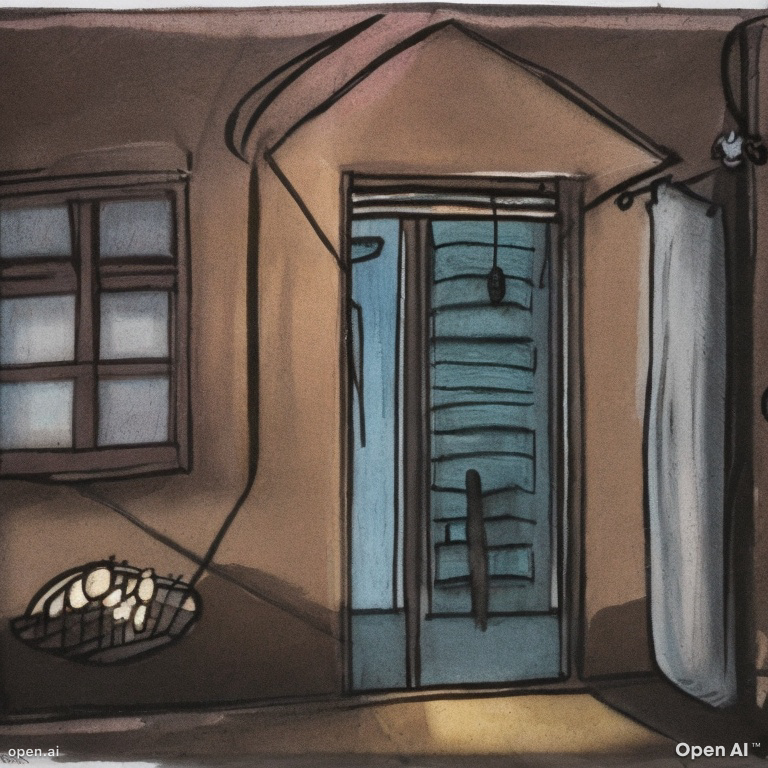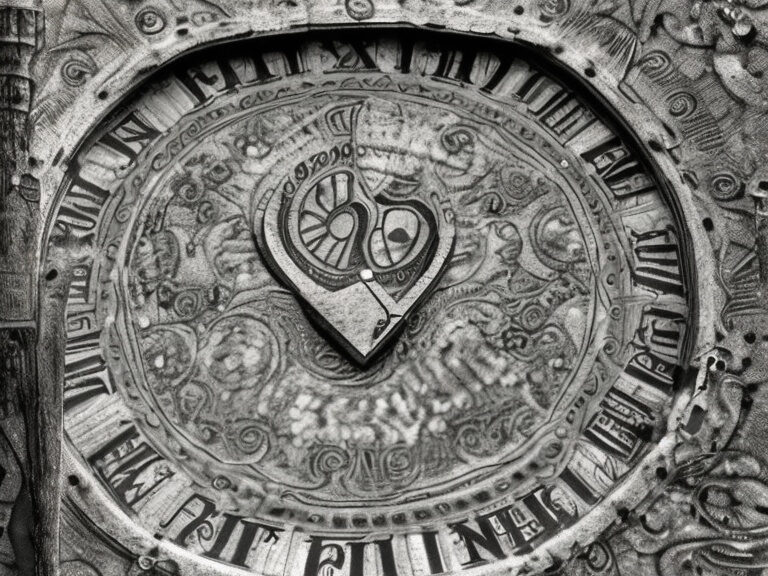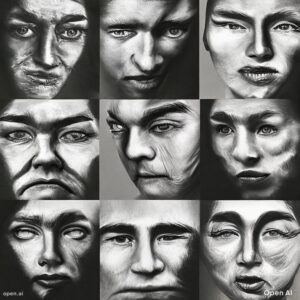The Crucible of Childhood
The flames of adversity burn bright, but they forge strength and resilience in those who endure. Such was the crucible of our hero’s early years.
In Phoenix, Arizona, as a young boy, I faced an unkind and unforgiving world. Violence and abuse at the hands of stepparents, bullying in school – these trials would shape his character and ignite a fire within him. Though painful, the details of those early years were instrumental in molding a spirit that refused to succumb to hardship.
The first of my memories are of red and blue lights flashing in the windows, casting a surreal and menacing glow over everything they touched. It was as if an alien presence had invaded the very fabric of our home. The officers moved swiftly, their faces stern and their actions decisive.
My mother held me tight, her body trembling with sobs, her face bruised and bloodied from the chaos unfolding. Her eyes were fixed on my father, who was handcuffed, his face twisted with rage and desperation. The words he hurled at her were sharp and poisonous, filled with an anger I could not understand. Each word was a dagger, cutting deeper into my mother’s soul.
“Look at what you’ve done!” he screamed, his voice echoing through the night. “You’ve ruined everything!”
His eyes met mine for a fleeting moment, and I saw something I had never seen before – a raw, animal fear. Then, he was pushed into the back of the police car, still yelling, fighting, but defeated.
The car drove away, the red and blue lights receding into the distance, leaving us in a world that had been forever altered. My mother’s embrace tightened, a silent promise that she would protect me, even as her world crumbled around her.
The world was a place of colors and sounds, intense but fleeting feelings. I was two years old, and everything was an exploration, a discovery. But some things changed, leaving a mark, even in my young mind.
The flashing lights were gone, but the memory lingered like the echo of a bad dream. My mother’s face, once a source of warmth and smiles, was different. Her eyes were sad, her hugs a little tighter, and her voice softer.
We moved to my grandmother’s place, a trailer somewhere in South Phoenix, which was smaller, filled with unfamiliar smells and corners to explore. I missed the old home, but this one had its mysteries too. My mother was always busy, always moving, but she always had time for a story, a game, a gentle kiss goodnight.
Other faces came and went. People talked in hushed voices, their words a confusing jumble. I didn’t understand what they were saying, but I felt their worry, their stress. It was in the way they looked at me, in the way they touched my hair, in the way they sighed when they thought I wasn’t looking.
Days turned into weeks and weeks into months. The memory of my father, shouting, and anger became a distant shadow, something half-remembered but never fully understood. But it was there, a puzzle piece that didn’t fit, a question that no one seemed to answer.
Life continued a mixture of play and learning, laughter and tears. But something had changed, something profound. It was a lesson I was too young to articulate but old enough to feel: life was fragile, and love was something to hold on to, something precious and dear.
At the age of four, the world was a place of endless possibilities, filled with dreams and adventures waiting to be discovered. The arrival of Pat Nichols into our lives seemed like the beginning of a new and exciting journey. His laughter was infectious, his promises grand, and he spoke of a city filled with lights and wonders – Chicago.
My mother’s eyes sparkled with hope as she listened to Pat’s tales of the life awaited us. The decision was made, and we packed our bags, leaving behind the safety and warmth of my grandparents’ home. Chicago beckoned, and we answered its call, hearts filled with anticipation.
Our new home was with Pat’s mother, a stern but not unkind woman who welcomed us into her house. The city was vast and unfamiliar, its sounds and smells a constant reminder of how far we were from everything we knew.
For a brief time, Pat’s promises might come true. He was attentive and charming, and my mother’s smile returned. We explored the city, its parks, and museums, a wonderland of discovery. But like the changing seasons, the warmth and brightness faded, and a cold, hidden darkness emerged.
The first signs were subtle, a harsh word here, a sharp look there. Pat’s laughter grew less frequent, his temper more volatile. My mother’s smiles became forced, her eyes filled with worry she tried to hide.
And then, the violence began, again.
At first, it was a slap, a shove, a momentary loss of control. Excuses were made, apologies offered, and we tried to believe it was an aberration, a one-time mistake. But the pattern repeated, growing in intensity and frequency. The home that had once promised a fresh start became a prison, a place of fear and uncertainty.
My mother’s strength was tested again, her love for me, her guiding light. She navigated the storm; her eyes were ever watchful, her spirit unbroken. But the dream had turned into a nightmare, and we were caught in its relentless grip, struggling to find a way back to the safety and love that had once seemed so attainable.
Pat Nichols was a man of many faces. At first, he played the role of the charismatic suitor, winning my mother’s heart and painting a picture of a bright future. But behind the charm lay a darkness that soon revealed itself in cruel and unimaginable ways.
The violence was not limited to shouts and slaps; it took on a more sinister and personal form. Pat seemed to take pleasure in my pain and humiliation. He would punch me in the stomach with a force that left me gasping for air, his eyes cold and unfeeling.
In his mother’s living room, a tank of piranhas became an instrument of terror. When my mom wasn’t around, and if Pat or his brother weren’t teasing their mom by holding her small dog over the piranha, they would take my small hand and hold it above the water as I cried for help, the fear of those sharp teeth a constant nightmare that haunted my waking and sleeping hours. I would pull away, tears in my eyes, the laughter of Pat ringing in my ears.
A constant barrage of insults and degradation compounded the physical abuse. He would tell anyone who would listen how stupid I was, even going so far as to call me “retarded.” The words were like daggers, cutting deeper with each repetition, leaving scars that were invisible but no less real.
My mother’s face was a mask of fear and helplessness; her dreams shattered, her love for Pat replaced by a growing realization of the monster he truly was. She did her best to shield me, her hugs a refuge; her whispered words of love a balm to my wounded soul. But the damage was done, and the home that had once promised a new beginning had become a place of torment and despair.
Through it all, I held onto the memories of my grandparents, their love and warmth a beacon in the darkness. The lessons of resilience and courage they had instilled in me were my armor, my shield against the cruelty that sought to break me. I was young but strong, and in my heart, I knew I would survive, rise above the pain, and find a way back to love and light.
The nightmare seemed endless, a new test of courage and endurance each day. But even in the darkest moments, a spark of resolve burned within my mother’s heart. She knew that we could not live in fear and pain and had to find a way out. And so, as I turned five, she began to plan our escape.
The decision to leave was fraught with risk and uncertainty, but it was a chance we had to take. In whispered conversations and stolen moments, my mother reached out to a stranger, a person she met who sensed our desperation and agreed to help. Their kindness was a lifeline, a beacon of humanity in a world that had become cruel and cold.
The night of our departure arrived, the air thick with tension and fear. My mother’s face was pale, her hands trembling as she packed our few belongings. I didn’t fully understand what was happening but I could feel the moment’s urgency and weight.
We slipped out into the night; our footsteps muffled, our breaths shallow and quick. The city was a maze of shadows and sounds, and we moved through it, driven by the hope of freedom and the terror of being caught.
 The stranger’s home was a sanctuary where we could breathe, if only for a little while. They welcomed us with open arms, their compassion a reminder that goodness still existed in the world. We were safe, but we were not yet home.
The stranger’s home was a sanctuary where we could breathe, if only for a little while. They welcomed us with open arms, their compassion a reminder that goodness still existed in the world. We were safe, but we were not yet home.
With determination and the support of our newfound friend, we made our way to the airport, our hearts pounding, our eyes constantly watching for signs of pursuit. The flight back to South Phoenix was a blur, the landscape below a tapestry of memories and dreams.
And then, we were there, back in the embrace of family, back in my grandmother’s arms. The pain and fear were still with us, the scars still fresh, but we were safe. We were home.
Life would not be the same; the innocence of childhood forever altered. But we had each other and the love and strength of family to guide us through the healing process. We were survivors and ready to begin the long journey toward recovery and hope. Or so I hoped.



